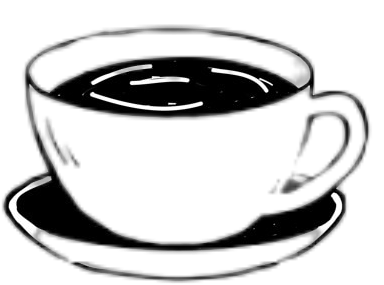Have you ever pulled an espresso shot, eagerly awaiting that first taste, only to be met with a sharp sourness? As a coffee enthusiast, I completely understand how disappointing that can be. But don't worry—there’s a solution! Over time, I’ve fine-tuned my espresso-making skills to eliminate that sour taste. Whether you're a beginner or a seasoned home barista, these tips will help you fix sour espresso and brew a perfectly balanced shot. Explore the ease of use and versatility in our DeLonghi Eletta Explore Espresso Machine with Cold Brew Review
What Makes Espresso Taste Sour?
Before jumping into the fixes, it's important to understand what causes sourness in espresso. The culprit is typically under-extraction, meaning the coffee hasn’t brewed long enough to release its full spectrum of flavors. When this happens, the natural acids in the coffee overpower the other flavors, leading to that sharp, tart taste. Several factors contribute to under-extraction, and once you identify these, fixing sour espresso becomes a lot easier. Discover the advanced frothing capabilities in our DeLonghi Dinamica Automatic Coffee & Espresso Machine Review
1. Coffee Grind Size
A common cause of sour espresso is an incorrect grind size. If your coffee grounds are too coarse, water moves through them too quickly, preventing full extraction and resulting in sourness. Compare features and performance in our DeLonghi Magnifica Evo Espresso Machine with Frother Review
How to Adjust:
Set your grinder to a finer setting, and make small adjustments. After each change, pull a test shot. A finer grind allows for better extraction, giving you a more balanced flavor. See how these two models stack up in our DeLonghi Magnifica Evo vs Philips 4300
2. Water Temperature
Water temperature is crucial for proper extraction. If the water is too cool, it won’t extract the coffee properly, leaving you with sour espresso. Ideal water temperature for espresso should be between 195°F and 205°F (90°C to 96°C). Find out the key differences in our DeLonghi Magnifica Evo vs Philips 2200
How to Adjust:
Use a thermometer to ensure your machine is heating the water correctly. If your machine allows for temperature adjustments, tweak the settings as needed, or let the machine warm up longer to hit the ideal range. Explore the ease of use and versatility in our DeLonghi Magnifica Evo vs Philips 3200
3. Brewing Time
Extraction time, or the time it takes to pull a shot, heavily influences flavor. Shots that pull too quickly—under 25 seconds—often result in sour espresso.
How to Adjust:
Time your shots and aim for an extraction window of 25 to 30 seconds. If your shot pulls too quickly, try tamping the coffee more firmly or adjusting to a finer grind to slow the water flow. Be cautious, though—shots that take too long can become bitter.
4. Coffee Bean Freshness
Using old beans can also cause sourness. Coffee is best within two to three weeks of roasting. If you’re using beans that are past their prime, the espresso may taste sour or flat.
How to Adjust:
Opt for freshly roasted beans. Always check the roast date and aim to use your beans within the first few weeks. If you find you’re not using beans quickly enough, consider buying smaller quantities or subscribing to a service that provides fresh beans regularly.
5. Coffee Dose
The amount of coffee in your portafilter can affect the balance of your shot. If you use too little coffee, the water rushes through, leading to under-extraction and sourness.
How to Adjust:
Use a digital scale to precisely measure your coffee dose. For a single shot of espresso, aim to use around 18 to 20 grams of coffee. If your shot is sour, try increasing the dose slightly and see if it improves the flavor.

Extra Tips for a Perfect Espresso
Invest in Quality Gear
The quality of your grinder and espresso machine makes a big difference. A burr grinder will give you a more consistent grind, and a machine with stable water temperature and pressure is crucial for a reliable shot.Consistency is Key
Once you find the right combination of grind size, water temperature, and brewing time, replicate it consistently. Keep track of these variables to ensure every shot is perfect.Experiment with Different Beans
Each coffee bean is unique. Depending on its origin, roast level, and freshness, you may need to adjust your grind size or extraction time. For example, lighter roasts may need a finer grind or longer brewing time than darker ones. Don’t be afraid to experiment!

Conclusion
Fixing a sour espresso is simpler than you might think. By fine-tuning key factors like grind size, water temperature, brewing time, bean freshness, and coffee dose, you can eliminate sourness and brew a beautifully balanced shot. Espresso making is an art, and with practice, you'll master it. Once you dial in your technique, the reward of a perfect espresso will make all the effort worthwhile.
Happy brewing!
